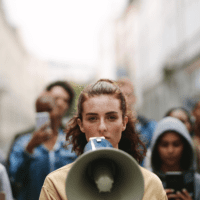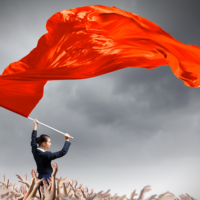Minorities are a group of people within a community or country who differ from the main population because of their ethnic, cultural, religious and linguistic affiliations. Their rights are highlighted because they are in a vulnerable position compared to others. The pain felt by minority groups is palpable, and the disadvantages they face are real….
7 Elements of Culture and How it Shapes Our Life
Culture is the shared language in a community. The holidays celebrated, the religions practiced, the way we communicate, and the food we cook all fall under the umbrella of culture. But knowing a culture on a surface level can lead us to stereotypes and a belief that everyone in a group is alike. One way…
The 5 Greatest Empires in History (and what we can learn from their legacy)
The greatest empires in history are responsible for shaping our world. Historical empires are great teachers as well as cautionary tales. By learning from the past, we can learn leadership and resource management skills, as well as human rights lessons. These five greatest empires in history will inspire you to build your own “empires” with…
8 Famous Activists Who Changed History
Activism is all about acting to bring about social change. It establishes fairness when we sense an imbalance of power that impacts society. There are no perfect activists, and everyone can use their unique skills to contribute if they do so from a place of passion. These stories of some of the most prominent famous…
Revolutions That Changed the World and How Conflict Shapes Us
Revolutions are instruments of change. They are often used when an existing leadership refuses to embrace progress. These transformations are fundamental to the growth and evolution of civilization. Learning about revolutions that changed the world can help us appreciate the sacrifices made by our ancestors and encourage us to embark on our own revolutions. These…
10 Fascinating Indigenous Cultures from Around the World (and why we should protect them)
Indigenous people make up 6% of the world population, are spread across 90 countries, and speak 4000 languages. They have centuries of rich heritage consisting of cultural practices and knowledge that we can learn from. These ten fascinating indigenous cultures from around the world will not only broaden your horizons but help you recognize the…
How to Recognize the Differences in Cultural Communication Styles
The ability to communicate between cultures can give you an edge in your professional life and make you a more empathetic communicator. Each culture has different ways of expressing themselves, both verbally and non-verbally. When you learn cross-cultural communication styles, you’ll be able to recognize similarities and differences among various groups that allow you to…
Gender Bias and Discrimination: What it is and How it Can Be Avoided
Living in a world where men dominate in positions of power, the rules aren’t always made to support the growth and progress of women. Establishing gender equality will have dramatic benefits and lead to improvements in both family life and the wider community. Find out how gender bias and discrimination impact girls and women from…
Why You Don’t Need to be in Power to Change the World
No matter how committed we are to changing the world, we can’t make progress unless we believe that we have the power to do so. You don’t need to be famous or a trailblazer to make a difference. There are many ways to contribute, no matter what profession you’re in. You’ll find inspiration in these…
Understanding Individualistic and Collectivistic Cultures and How it Impacts Us
Culture is a way of life. It consists of practices, beliefs, rules, habits, and values that are used to guide behavior. Becoming aware of your culture’s influence and using that to make conscious choices that serve both your personal growth and your community is the key to finding balance. Here, we discuss both individualistic and…










